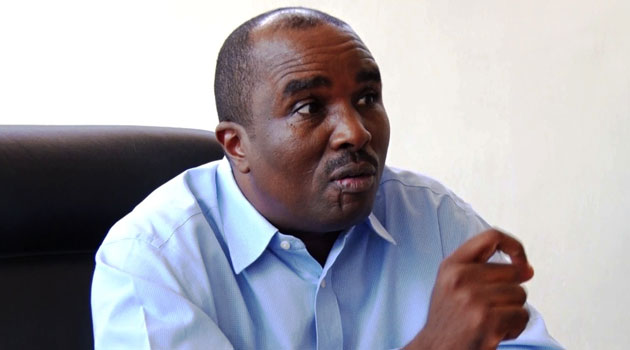
“It will be wrong to say that one cannot even keep cows in the village because they are civil servants/CFM NEWS
NAIROBI, Kenya, Jan 28 – A law proposed by Uhuru Kenyatta to bar civil servants from private businesses is not feasible, constitutional lawyer Kamotho Waiganjo has said.
Speaking to Capital FM News, Waiganjo said the only way to deal with corruption by civil servants is through regular lifestyle audits.
“I am not sure that stopping them from doing business is going to work because the entry point would not be so much on whether I am making money but whether I am making money legitimately. It will be wrong to say that one cannot even keep cows in the village because they are civil servants; what you want to ensure is that I do not make money from the government through conflict of interest and that can be achieved through continuous lifestyle audit,” he advised.
He further reiterated that many public officers and civil servants are not directly involved with their businesses, thus it will be hard to enforce it.
“You would hardly find any civil servant directly involved in these process or businesses today. A lot of people operate through proxies, relatives, and shadow companies so if the government approaches it from the position of just the formal refusal of them engaging in business then they are not going to solve much,” Waiganjo added.
Last Friday during an Anti-Corruption Conference at the Bomas of Kenya, President Kenyatta directed Attorney General Paul Kihara to publish a Bill that will lock all civil servants out of private business to tackle the crisis of conflict of interest blamed for fuelling corruption.
Participants who attended the conference had earlier asked President Kenyatta to revoke a recommendation contained in the 1971 Duncan Ndegwa Commission Report, which made it possible for all civil servants to run private businesses on the side.
Those who supported the revocation of the report argued that Parliament approved the Ndegwa Commission Report, which allowed public servants to do business, opening corruption floodgates while overlooking conflicts of interest and sabotage.
Conflict of interest is said to be the biggest contributor to graft because when the public servants do business with their employer, efficiency is compromised as they concentrate more on their businesses and use their positions to do business with the government.
To some, successive Parliaments have frustrated the few attempts to probe corruption in ‘high offices’.
What emerged from the conference is that fight against corruption in present-day Kenya is a tall order and history is replete with examples.
Chief Justice David Maraga said the only way to win corruption is by people being honest with themselves, following the law and not blame games.
He called on the public to report and work together with institutions mandated to deal with corruption such as the Ethics and Anti-Corruption Commission (EACC), but the question is who will take who to court to answer corruption charges? The corrupt are the most influential and are the untouchables in society as the CJ said during the conference.
“We need to be very intentional and very honest on how we deal with this monster called corruption; we cannot target few when we have corrupt people even at the biggest offices and some of them are here, yes they are here with us.”
The two- day anti-corruption conference was a wakeup call to many Kenyans that dealing with corruption should not be a public relations exercise.
Majority of the people believe that for the country to redeem its dented image and tame corruption, the Ndegwa Report must be scrapped.








































